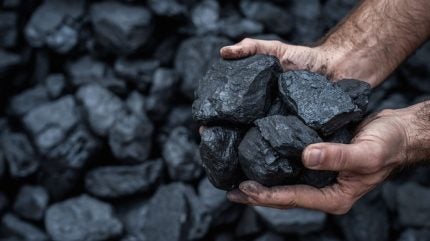
A recent analysis by the Centre for Research on Energy and Clean Air (CREA) suggests that if China continues its current trajectory of clean energy expansion, and India and Indonesia meet their declared clean energy goals, emissions from the power sector in these three significant coal-expanding markets could start to decrease by 2030.
Achieving a peak in coal power generation in China, India, and Indonesia would mark a significant milestone in the global initiative to lower carbon dioxide (CO₂) emissions.

Discover B2B Marketing That Performs
Combine business intelligence and editorial excellence to reach engaged professionals across 36 leading media platforms.
The three countries collectively consumed 73% of the global coal in 2024, according to the body.
CREA co-founder and lead analyst Lauri Myllyvirta said: “Unchecked coal power expansion risks creating powerful vested interests that could potentially delay the energy transition in China, India, and Indonesia.
“Rapid reduction in power sector emissions post coal peak would not only require maintaining pre-2030 renewable energy growth rate in all three countries but also ensuring power market and grid reforms.
“The total reduction in power sector CO₂ emissions could be equivalent to India’s total 2019 CO₂ emissions, compared to business as usual.”

US Tariffs are shifting - will you react or anticipate?
Don’t let policy changes catch you off guard. Stay proactive with real-time data and expert analysis.
By GlobalDataOver the past ten years, these countries have experienced a significant increase in coal consumption, thereby fuelling global demand.
CREA China analyst Qi Qin said: “China has already added enough new clean electricity generation to cover all new demand growth, and power sector coal use and emissions have been falling since 2024 as a result.
“While the coal power decline is unlikely to be linear and may experience occasional setbacks, maintaining China’s current pace of clean energy growth means a coal power peak is imminent.”
The analysis highlights the continuous expansion of coal power as a shared challenge in all the three markets.
CREA analyst Katherine Hasan said: “President [Prabowo] Subianto’s 100GW solar programme could ensure that Indonesia’s coal power generation peaks by 2030. However, the current national plans still include near-term increases in fossil fuels.
“The real opportunity lies in translating this vision into a concrete delivery roadmap that positions clean energy to dominate new capacity additions.”
The analysis suggests that in each of the three countries, there are clear possibilities for either a swift reduction in coal use following its peak or a prolonged plateau, potentially even a resurgence.
If the growth of renewable energy slows after reaching its peak in 2030, it could lead to missed opportunities in emissions reductions.
CREA analyst Manoj Kumar said: “Meeting India’s 500GW of nonfossil power capacity set by Prime Minister [Narendra] Modi could in fact peak coal power before 2030.
“The country has already crossed the 50% mark well ahead of its 2030 deadline, even as electricity demand continues to rise in line with rapid economic and population growth. Strengthening grid flexibility, storage, and transmission will be key to sustaining this momentum and ensuring reliable, affordable electricity.”





